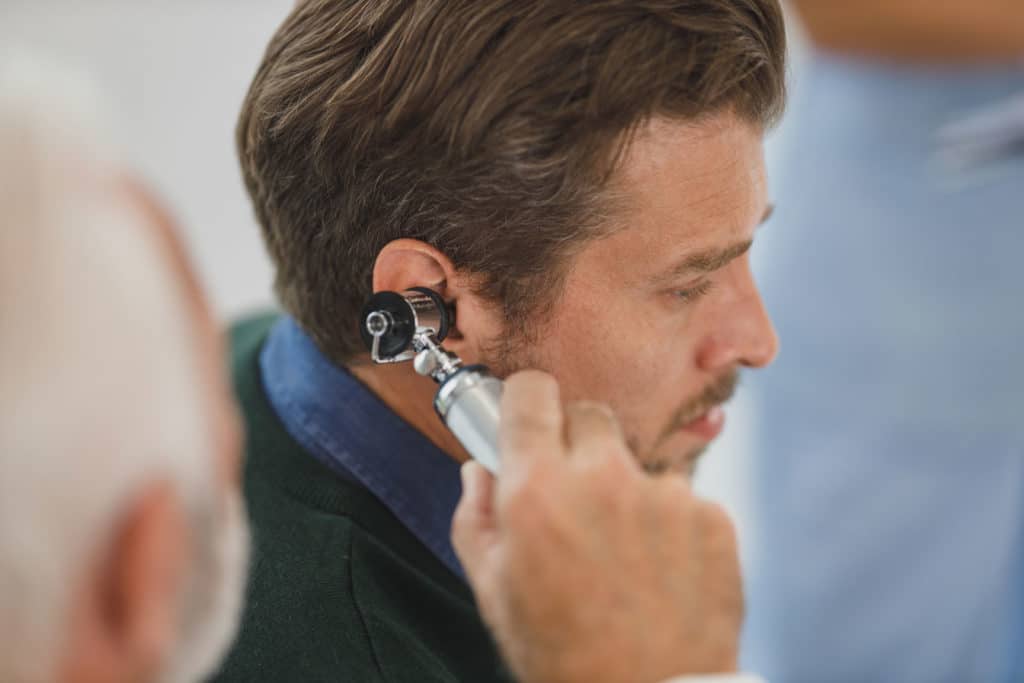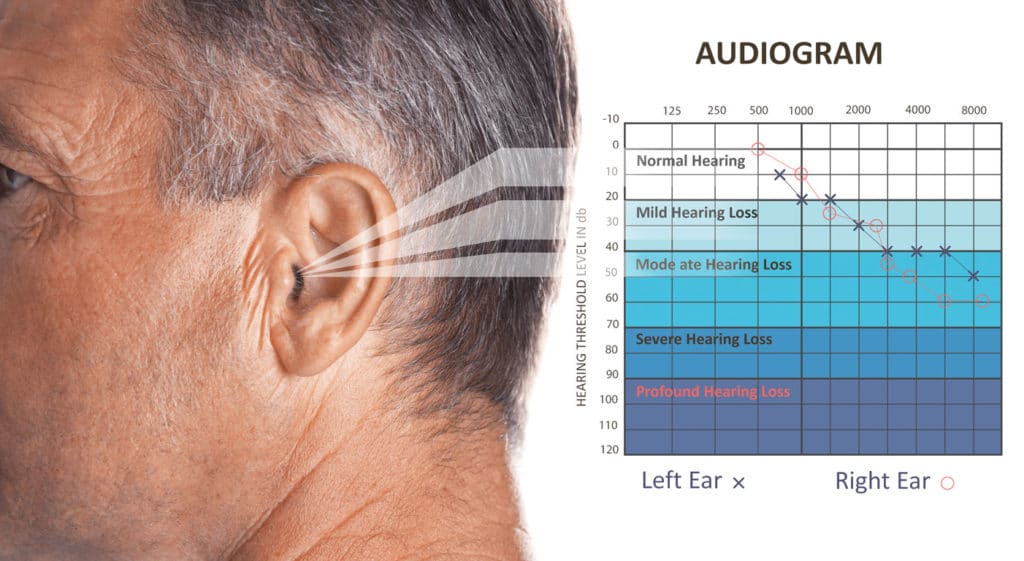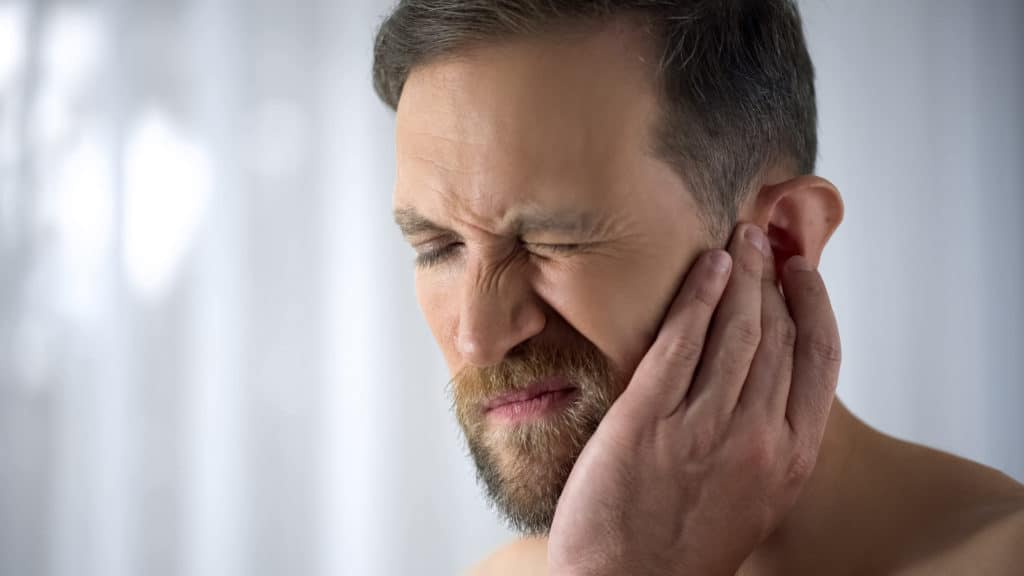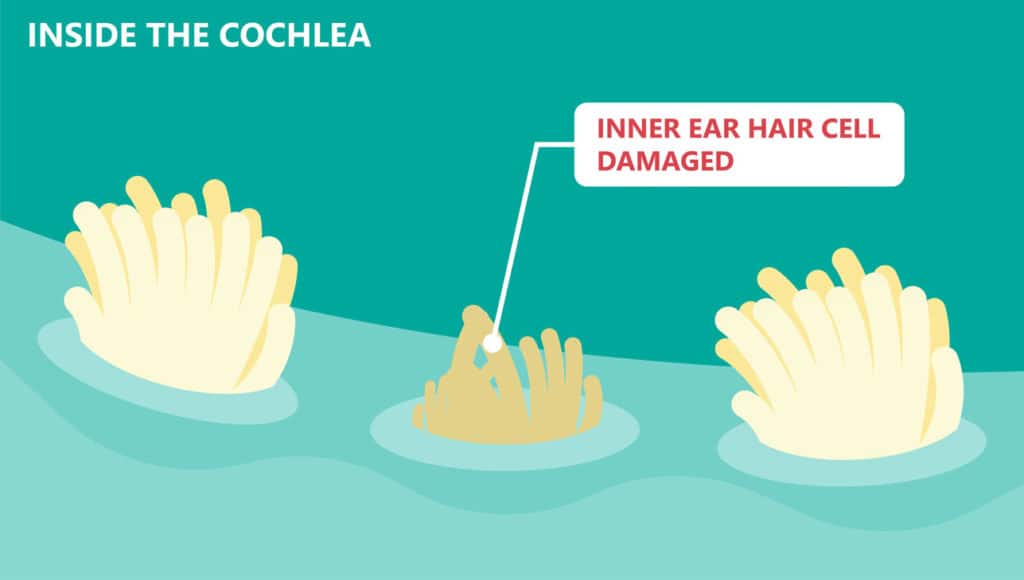
What is hidden hearing loss?
A hearing loss can include many different deficits, from peripheral auditory factors like a high-frequency sensory loss. This means high-pitched sounds are more difficult to hear, to central acoustic issues with cognitive function. High-frequency hearing loss can affect people of all ages. However, it is more common in older adults with age-related hearing loss and those exposed to loud sounds.
A hidden hearing loss is a particular type of hearing loss that cannot be measured by standard hearing testing. Upon speculation of a hearing loss, the initial step is to measure the hearing using an audiogram. Still, for those with hidden hearing loss, the audiogram looks the same as it would for some with normal hearing.

How is hidden hearing loss caused?
Hidden hearing loss is most often linked to damaged hair cells inside our ears. These cells connect to the cochlea in the ear to the brain, detect vibrations in the environment, and then translate them into a signal that cues our auditory nerves to fire. Once the nerve cells lose their connection with the hair cells, they can no longer send information to the brain; thus resulting in the brain receiving inadequate information from the ear, and thus causes it to struggle to convert the information accurately.
During an audiogram (considered the gold standard or hearing tests), patients listen to sounds of different frequencies at different volumes to dictate their thresholds for sound detection. Generally, people with damaged hair cells have a hard time hearing low-volume sounds across specific frequencies.
prevention
It is vital to protect yourself from deafening noise. Be sure to use quality hearing protection for concerts, loud machinery when doing even the most basic day-to-day activities such as using power tools and powered lawn equipment. Keeping your volume to a lower level while listening to music or podcasts is critical. If you are in a loud environment that is bothering you, see if you can find a new location with more manageable conditions.

Signs and Symptoms of hidden hearing loss
Typically this type of hearing loss does not affect one’s ability to hear quiet sounds; instead, it makes it more challenging to listen to sounds when in competing background noise. That is the main symptom of hidden hearing loss.
One early sign of hidden hearing loss is tinnitus, or ringing, buzzing, humming in the ear, but not always. People can have tinnitus without hearing loss and vice versa. Researchers suggested using the term “hidden hearing loss.” They found that patients with clinically “normal” hearing but also experienced tinnitus might have reduced production of the auditory nerve due to neural damage or synaptopathy.
Cochlear synaptopathy is the loss of nerve connections between the sensory cells and the brain, resulting in noise-damaged and aging ears. The results are prime to public health due to exposure to noise and ototoxic drugs, which have been shown to create damage to your ear before an audiogram can detect it.

Hidden hearing loss treatment
If you think you might have hidden hearing loss, you should visit your hearing health specialist and let them know about your hearing problems. They can help to identify any issues and help treat your loss.
Several studies suggest that some people experiencing hidden hearing loss may see a mild improvement with open-fit hearing aids. Others have shown success with FM systems and general communication strategies to improve hearing, such as lip reading and closed captioning.
Salem Audiology Clinic and Hidden Hearing loss
If left untreated, hidden hearing loss can undoubtedly lead to a more profound hearing loss over time. If you are experiencing hearing loss, schedule a hearing assessment with a Salem Audiology Clinic today. With over 38 years of experience, we can help identify any hearing issues and help treat your hearing loss. Remember that the sooner you can detect hearing loss, the better opportunity you have in preventing further damage to your hearing
Call us today at (503)877-1684
